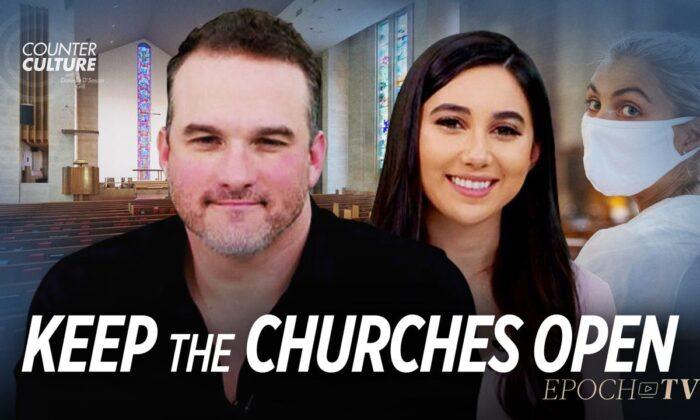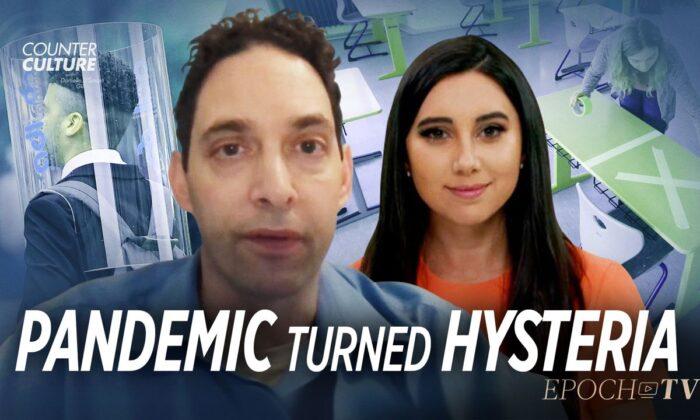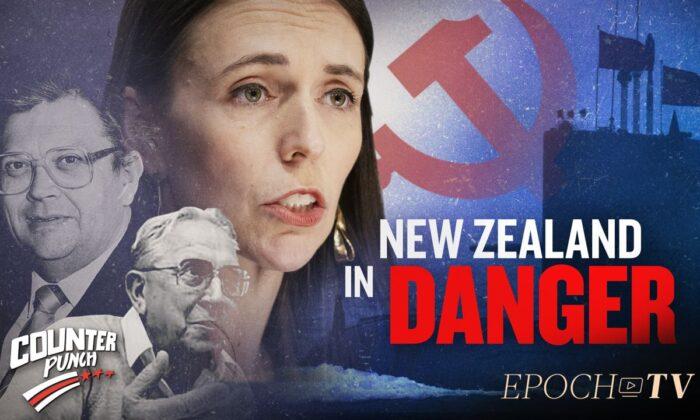From the very outset of the interview, Tamny makes clear his belief that the state of current global economics has much more to do with the way governments reacted to the coronavirus than the actual severity of COVID-19 itself. In essence the “pandemic” could be better defined as a result of government overreaction and not just the effects of COVID-19. Tamny begins his argument from the standpoint that had people been allowed the freedom to determine how they were going to react to this new coronavirus, we wouldn’t have begun to see the same kind of economic devastation the world is currently grappling with, and we may have figured out more quickly what did and did not work in terms of containing the spread of the illness. Critics will of course claim that doing so may have resulted in a higher death total, ignoring the recovery rate for COVID-19 is somewhere between 97 and 99 percent. This is where leftists scream about the right being cold and uncaring, also ignoring the fact that governments worldwide reacted as if we were all living through the movie “Contagion,” where the fictionalized virus killed one in four people it infected. Surely there was a better way to handle this pandemic than to act as if one quarter of the earth’s population was at risk of imminent death when it simply wasn’t true.
That is exactly Tamny’s point, and he does a great job dismantling the idea that we had “no choice” but to shut down businesses for months on end, only to prop those same businesses up after we’d shut them down. When Philipp plays devil’s advocate about the potential for a higher death rate if everything stayed open, Tamny suggests that ordinary people would have found ways to protect themselves without government intervention, taking the precautions they felt were necessary after assessing the level of risk they were comfortable with. He gives several examples of this, postulating that by letting the population go about their daily lives it would have given scientists even more data at a quicker rate to know what did and did not work when it came to truly slowing the spread of the virus. Human beings don’t tend to want to die, so ordinary people would have very rapidly figured out what did and did not work when it came to catching COVID-19 if left to their own devices. Perhaps if we'd done as he suggests, we wouldn’t be sending kids back to school in masks for another year based on limited studies using dummies and aerosol sprays.
In addition to the scientific and research benefits we could have gleaned by giving people more freedom, not less, Tamny staunchly believes that businesses would have also found ways to stay open without endangering everyone. No business owner wants their establishment to become known as a superspreader, so they would have learned very quickly what worked and what didn’t to make their patrons feel they could safely come inside and shop. The problem with government, he argues, is that it takes a one-size-fits-all approach, assigning the same limitations and demands to everyone no matter how different their situation. This has always been the crux of the argument for states like Wyoming and South Dakota, which never shut down and were decried by states like New York and California as reckless backwaters that were going to kill us all. How they were going to do that when those states have more cattle than people is anybody’s guess, but it’s a perfect example of the hysteria that has surrounded this pandemic due in no small part to the lockdowns that threw everyone into stasis and many into constant, unrelenting fear.
Much of that fear is due to the continually shifting narratives surrounding the pandemic that have left many not knowing what they can believe and who they can trust. Philipp mentions some of the early information about the disease that was initially debunked, only to later be proven as likely true, such as the virus’ origins, and how restricting what could and could not be talked about has led directly to public mistrust of the very institutions that claim to keep us safe. Tamny again asserts that this is a prime example of why freedom is so essential in a situation like this pandemic. Ultimately, the more a centralized figure clamps down, the more the public will begin to feel like the authorities have something to hide. Still, human beings are curious and freedom loving by nature, so information will find ways to come to light, no matter what lengths those in authority may take to keep people in the dark.
Tamny and Philipp then switch to a serious discussion about economics and just how badly the economy has been damaged by government panic. Not only has government stimulus prolonged the pandemic by giving people a reason to stay home rather than getting back to work, it allowed states like California and New York to march even more rapidly toward authoritarianism. Tamny argues that if Trump had stayed “true to form” and let the states decide how they were going to deal with this virus on their own, state governments wouldn’t have been able to simply lock everyone in their homes and shut down all nonessential businesses because their economies would have collapsed. They would have been forced to find other ways to stay open and keep people in their jobs without dipping into the public piggy bank to do it.
It’s a shame our current media environment, which remains rabidly anti-Trump to this day, would have attacked the former administration even more than they did—if Trump had gone this route. Government involvement is rarely the solution to any crisis outside of a category 4 hurricane. Government also has a terrible track record at picking winning and losing businesses, and practically exists to stifle innovation. To illustrate this point, Tamny lists the biggest businesses the Feds would have decided to bail out if the pandemic hit in 2000, and several businesses they wouldn’t even have considered saving. Apple, Amazon, and Netflix certainly would all have gone belly-up 20 years ago if they needed the government to bail them out in a pandemic. Indeed, hundreds of businesses fail each year naturally, and we don’t seek to save them all. The holding pattern we’ve been in since March 2020 is the same kind of stagnation socialism and communism cause every day, so it’s really no surprise we’re starting to experience rapid inflation, out of control gas prices, and supply chain disruptions. It all runs directly opposite to the forces that allow free markets to work.
Tamny also offers a sobering history lesson on the fear of death by COVID-19 that has been used to keep people sheltering in place in their homes and willing to accept all this economic turmoil as necessary to save lives. The list of what used to kill people on a routine basis is long and eye-opening, with cancer barely making the top 10, and as Tamny points out what used to kill us doesn’t anymore because of private sector investment in health. The kind of health care advances he talks about sound a lot like Operation Warp Speed, and it doesn’t feel like a stretch to say the push for the rapid development of a vaccine never would have worked if we hadn’t had a businessman in the White House at the time it was implemented. Trump brought the kind of innovative thinking needed to get the ball rolling in a bureaucratic system that still hasn’t figured out a way to fix inner city schools after decades of just throwing money at the problem.
Philipp and Tamny close the half hour talking about the problems shutting down small and medium businesses while allowing large businesses to stay open on multiple fronts, and the growing pushback against all the intervention. Tamny feels optimistic about the future despite the call for vaccine passports, social media censorship, and push to keep people apart. He sees a silver lining in the way the last year has so blatantly illustrated how incompetent and dangerous government is when they’re given too much authority over the rights of citizens, implying that this will lead to more freedom over time.
For all our sakes I hope he’s right.
The episode overall manages to make what is usually a dry subject engaging, and Tamny does an excellent job representing libertarian and conservative economic views that don’t come across as utopian. This is the perfect piece to share with anyone who thinks free markets don’t work and that the country would have collapsed entirely if the government hadn’t intervened over the course of the last year. Tamny supplies plenty of arguments disputing that, and with any luck, after listening to his rationale he’ll make them think again.
Follow EpochTV on social media:




